agent.exe
A simple application that lets AI control your computer

Product Details
agent.exe is an Electron-based application that leverages Anthropic's Claude 3.5 Sonnet's computer usage API, allowing users to directly control their local computer through AI. Developer Kyle Corbitt created this project to test Claude's new API and provide a more lightweight solution than the official example project. The application currently mainly supports MacOS systems, but in theory also supports Windows and Linux. The main advantage of the product is that it provides an easy way for AI to step in and perform computer tasks, but it also carries certain risks because it allows AI to completely take over the user's computer.
Main Features
How to Use
Target Users
The target audience is developers and technicians interested in AI technology, especially innovators who want to explore and experiment with the application of AI in computer operations. This app is suitable for them because it provides a practical test platform that allows them to directly interact with AI, observe how AI performs computer tasks, and develop and optimize based on this.
Examples
Developers can use agent.exe to test the efficiency of AI in file management
Users can use this application to let AI automatically complete some daily computer tasks, such as file organization
Technology enthusiasts can use it to study how AI performs tasks in different computer environments
Quick Access
Visit Website →Categories
Related Recommendations
Discover more similar quality AI tools

Open Multi-Agent Canvas
Open Multi-Agent Canvas is an open source multi-agent chat interface built on Next.js, LangGraph and CopilotKit. It allows users to manage multiple agents in a dynamic conversation and is primarily used for travel planning and research. This product utilizes advanced technology to provide users with an efficient and flexible multi-agent interactive experience. Its open source feature allows developers to customize and expand according to needs, with high flexibility and scalability.

Radio LLM
radio-llm is a platform for integrating long language models (LLMs) with Meshtastic mesh communication networks. It allows users on the mesh network to interact with LLM for concise, automated responses. Additionally, the platform allows users to perform tasks through LLM such as calling emergency services, sending messages, and retrieving sensor information. Product background information shows that currently only demonstration tools for emergency services are supported, and more tools will be launched in the future.

ProactiveAgent
ProactiveAgent is a proactive agent project based on large language models (LLM), aiming to build an intelligent agent that can predict user needs and proactively provide help. The project achieves this through data collection and generation pipelines, automated evaluators, and training agents. The main advantages of ProactiveAgent include environment awareness, assisted annotation, dynamic data generation and construction pipeline, and its reward model achieved an F1 score of 0.918 on the test set, showing good performance. The product background information shows that it is suitable for programming, writing and daily life scenarios, and follows the Apache License 2.0 agreement.

Cognitora
Cognitora is the next generation cloud platform designed for AI agents. Different from traditional container platforms, it utilizes high-performance micro-virtual machines such as Cloud Hypervisor and Firecracker to provide a secure, lightweight and fast AI-native computing environment. It can execute AI-generated code, automate intelligent workloads at scale, and bridge the gap between AI inference and real-world execution. Its importance lies in providing powerful computing and operation support for AI agents, allowing AI agents to run more efficiently and safely. Key benefits include high performance, secure isolation, lightning-fast boot times, multi-language support, advanced SDKs and tools, and more. This platform is aimed at AI developers and enterprises and is committed to providing comprehensive computing resources and tools for AI agents. In terms of price, users who register can get 5,000 free points for testing.

Macroscope
Macroscope is a programming efficiency tool that serves R&D teams. It has received US$30 million in Series A financing and has been publicly launched. The core functions focus on code management and R&D process optimization. By analyzing the code base to build a knowledge graph and integrating a multi-tool ecosystem, it solves the pain points of engineers being burdened with non-development work and managers having difficulty keeping track of R&D progress. Its technical advantage lies in multi-model collaboration (such as the combination of OpenAI o4-mini-high and Anthropic Opus 4) to ensure the accuracy of code review, and customer data is isolated and encrypted, compliant with SOC 2 Type II compliance, and promises not to use customer code to train models. Pricing is divided into Teams ($30/developer/month, at least 5 seats) and Enterprise (customized price) packages, targeting small and medium-sized R&D teams and large enterprises with customization needs, helping teams focus on core development and improving overall R&D efficiency.

100 Vibe Coding
100 Vibe Coding is an educational programming website focused on quickly building small web projects through AI technology. It skips complicated theories and focuses on practical results, making it suitable for beginners who want to quickly create real projects.

iFlow CLI
iFlow CLI is an interactive terminal command line tool designed to simplify the interaction between developers and terminals and improve work efficiency. It supports a variety of commands and functions, allowing users to quickly perform commands and management tasks. The key benefits of iFlow CLI include ease of use, flexibility, and customizability, making it suitable for a variety of development environments and project needs.

Never lose your work again
Claude Code Checkpoint is an essential companion app for Claude AI developers. Keep your code safe and never lost by tracking all code changes seamlessly.
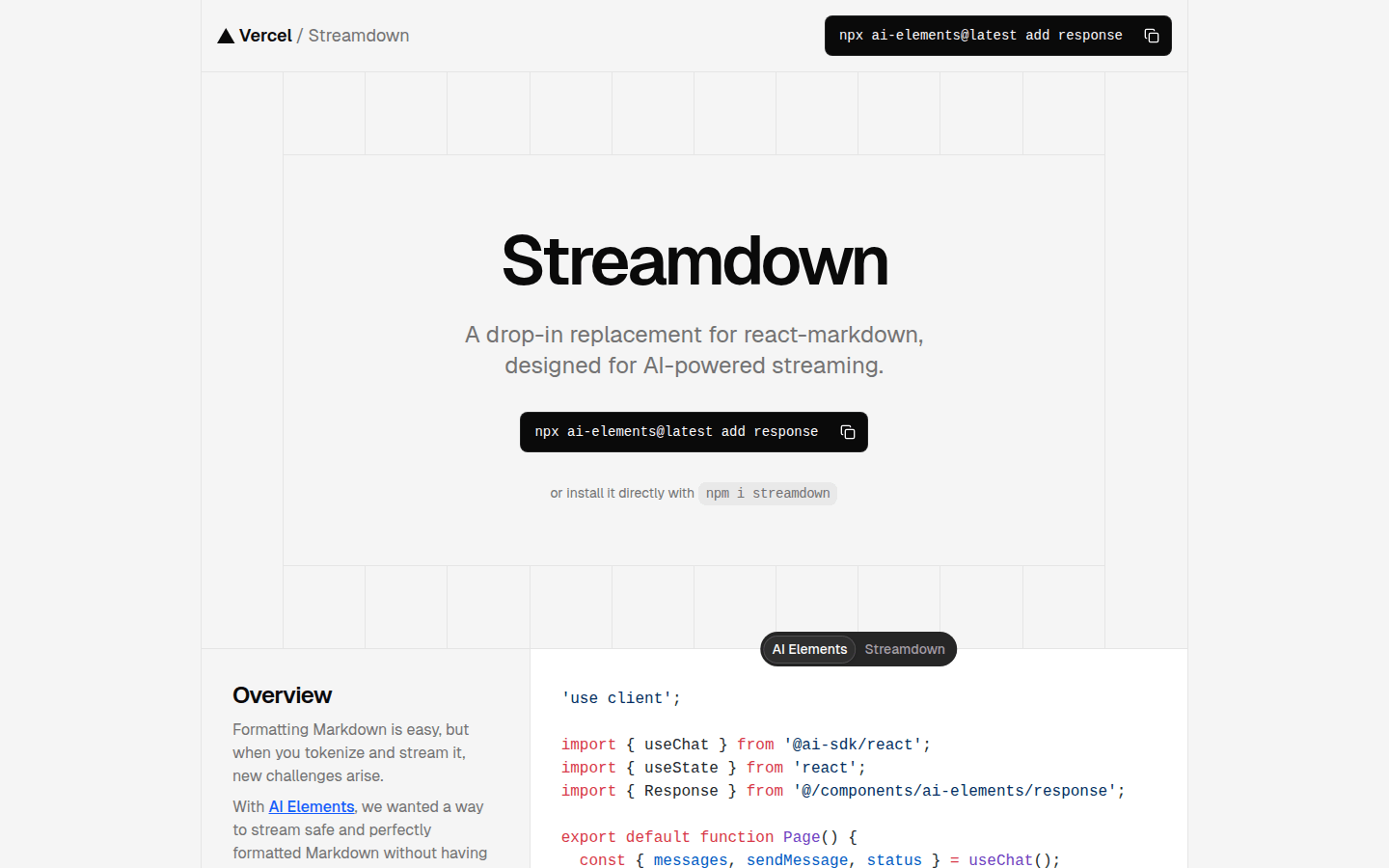
Streamdown
Streamdown is a plug-and-play replacement for React Markdown designed for AI-driven streaming. It solves new challenges that arise when marking and streaming, ensuring safe and perfectly formatted Markdown content. Key advantages include AI-driven streaming, built-in security, support for GitHub Flavored Markdown, and more.
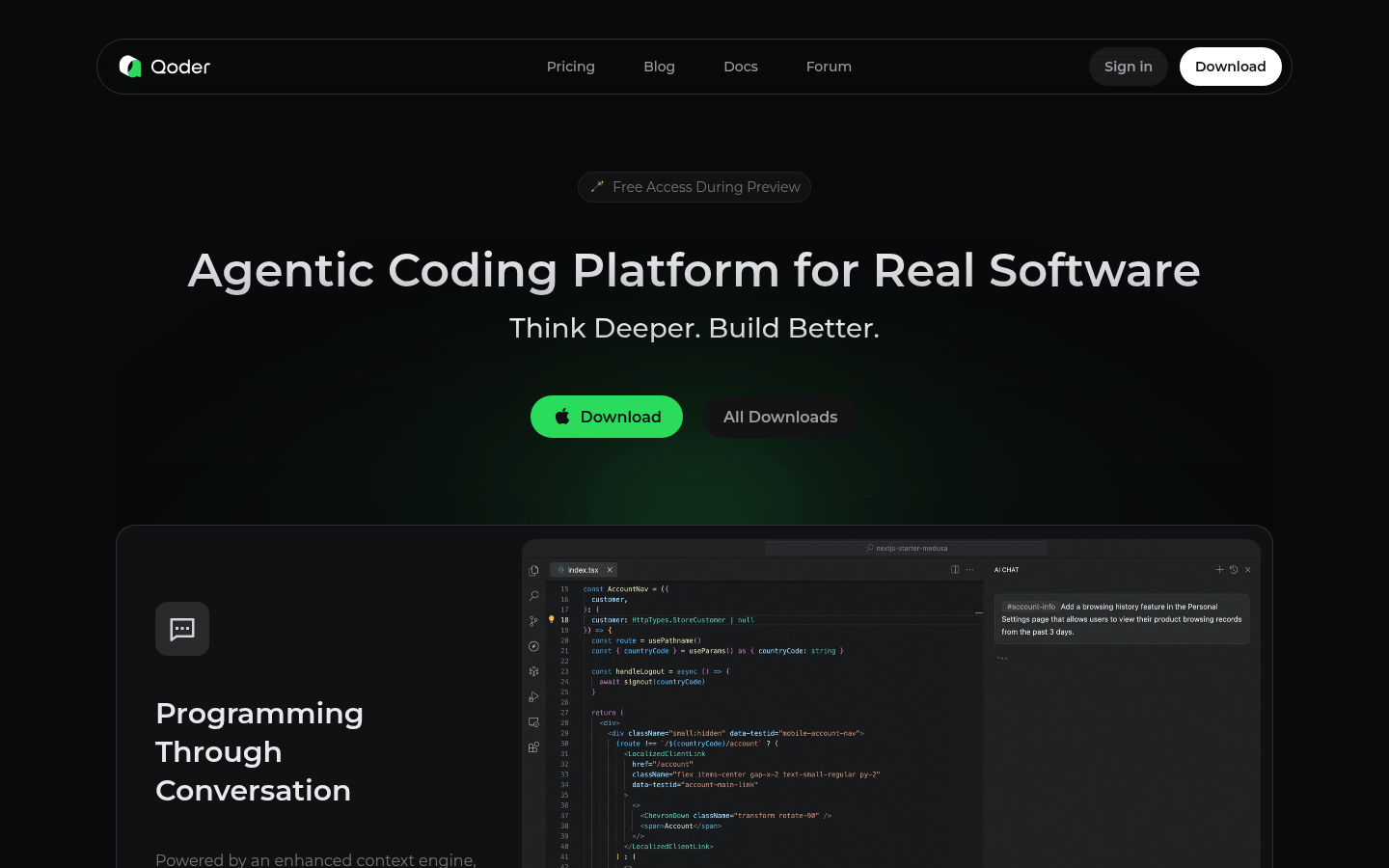
Qoder
Qoder is an agent coding platform that seamlessly integrates with enhanced context engines and intelligent agents to gain a comprehensive understanding of your code base and systematically handle software development tasks. Supports the latest and most advanced AI models in the world: Claude, GPT, Gemini, etc. Available for Windows and macOS.

Compozy
Compozy is an enterprise-grade platform that uses declarative YAML to provide scalable, reliable and cost-effective distributed workflows, simplifying complex fan-out, debugging and monitoring for production-ready automation.

Dereference
Claude Code is a futuristic IDE that seamlessly integrates with CLI AI tools such as Claude Code and Gemini CLI. Its main advantages are that it provides multi-session orchestration, atomic branching capabilities, and greatly improves developer productivity. The product is positioned to be designed for developers who want fast delivery.
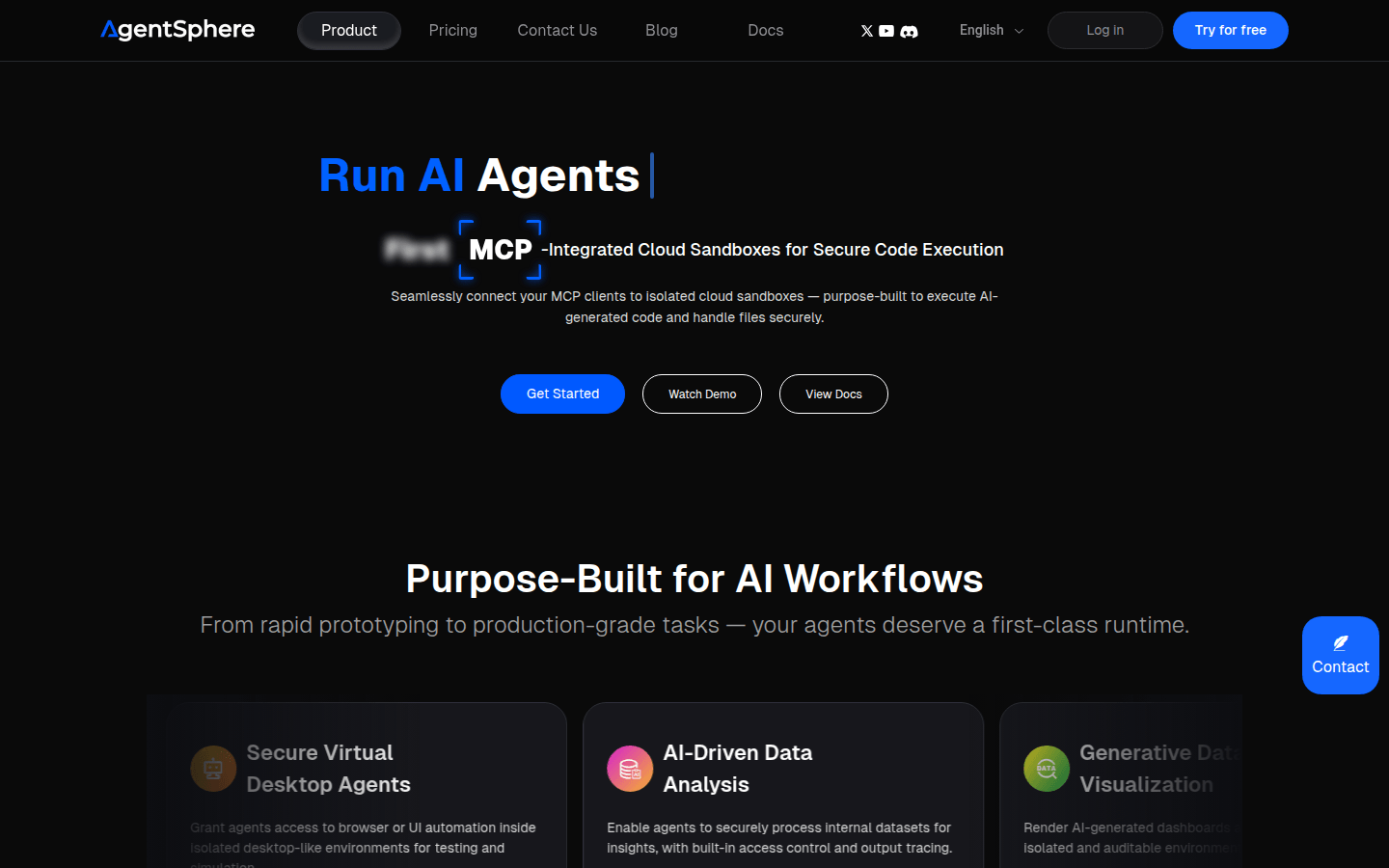
AgentSphere
AgentSphere is a cloud infrastructure designed specifically for AI agents, providing secure code execution and file processing to support various AI workflows. Its built-in functions include AI data analysis, generated data visualization, secure virtual desktop agent, etc., designed to support complex workflows, DevOps integration, and LLM assessment and fine-tuning.
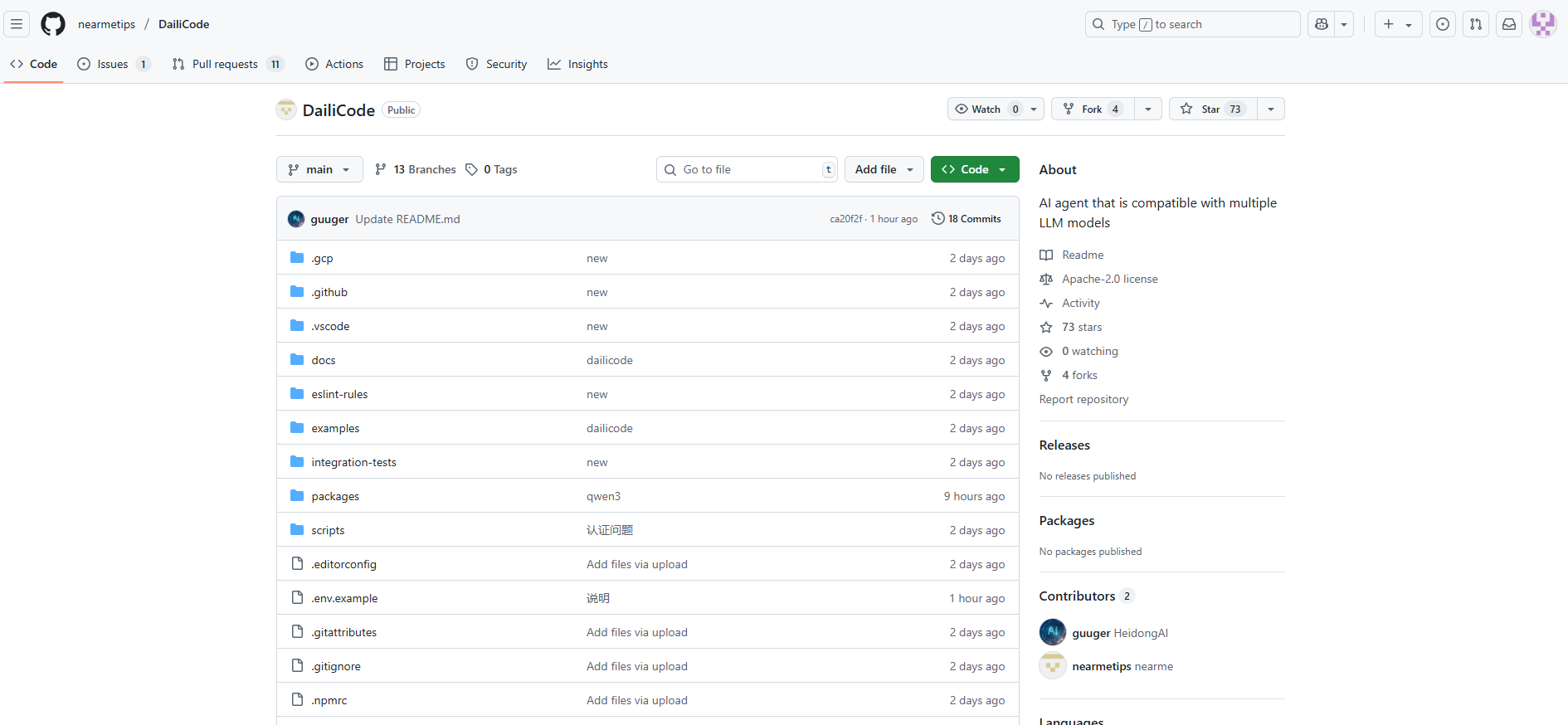
DailiCode
Daili Code is an open source command-line AI tool that is compatible with multiple large language models and can connect to your tools, understand code, and accelerate workflows. It supports multiple LLM providers, provides powerful automation and multi-modal capabilities, and is suitable for developers and technicians.
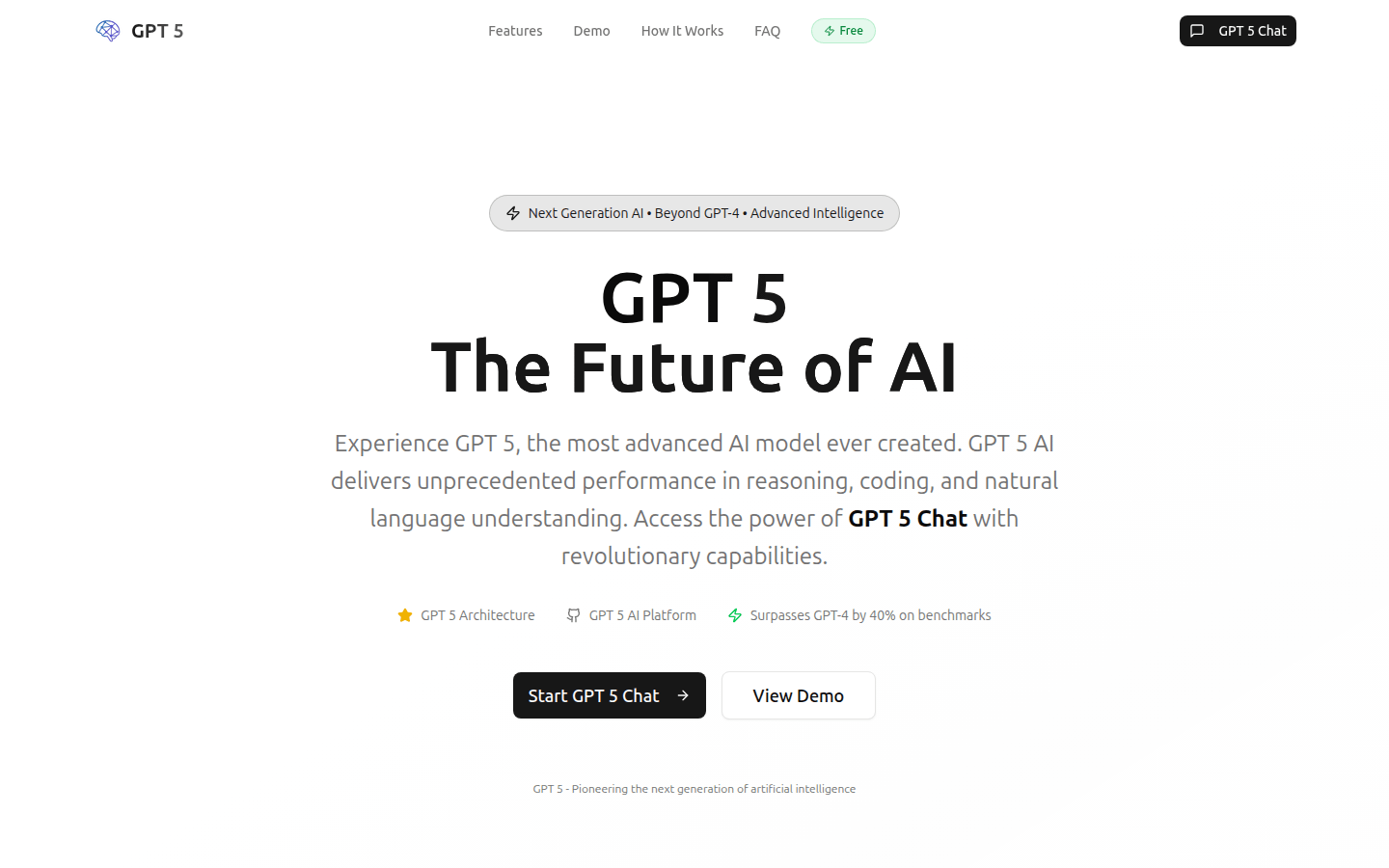
Gpt 5 Ai
GPT 5 is the next milestone in the development of AI, with unparalleled capabilities. Benefits include enhanced reasoning, advanced problem-solving, and unprecedented understanding. Please refer to the official website for price information.